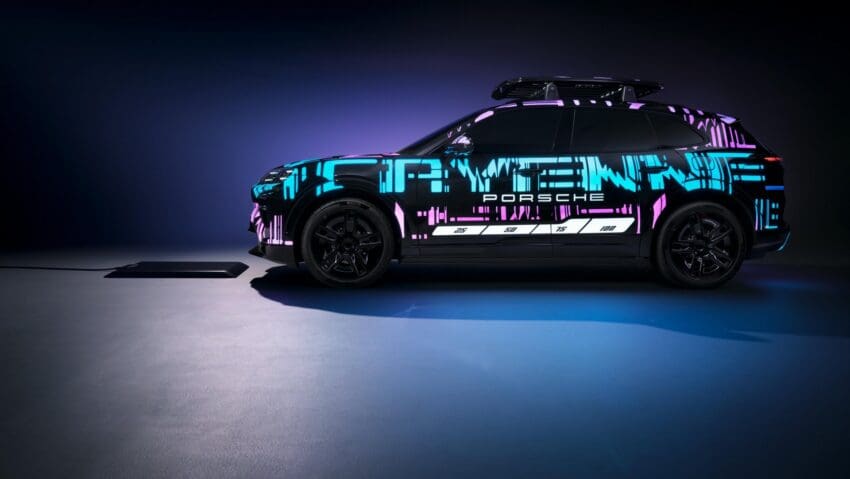
Porsche Cayenne EV gets wireless charging
The next-generation Porsche Cayenne will be able to charge its batteries wirelessly via a smartphone-style induction pad.
The German sports car specialist has announced that its flagship SUV will be the first production car to feature OEM-backed induction charging when it goes on sale in late 2025.
The Porsche Wireless Charging (PWC) system will allow owners to simply drive into a parking space and begin charging at up to 11kW. It features a ground-mounted plate which delivers the energy and a receiver plate in the underside of the car. Once the two are aligned (aided by the onboard “surround view” camera system), the Cayenne lowers on its air suspension and the contactless transfer of power begins.
Porsche says PWC will work with up to 90% efficiency and won’t be affected by debris such as leaves or snow on the charging pad. However, the system does include motion and foreign object detection and will stop charging if a living creature gets between the two elements – so you won’t accidentally fry the neighbour’s cat.
The system is a scaled up version of that already used in wireless charging for devices such as mobile phones. Energy is transferred through the air via a magnetic field generated between the transmitter and receiver coils. This AC charge is then converted to DC via an onboard “rectifier” so it can be stored in the Cayenne’s battery.
The floor plate itself measures 117cm by 78cm and sits 6cm tall. It also weighs a hefty 50kg. Porsche says it can be installed in garages, car ports or open-air parking spaces and is wired directly to the mains supply in the same way a home wallbox is. With internet connectivity built in, it can be controlled via the Porsche app and offers the same remote control for starting, stopping and scheduling charging sessions.
Porsche also confirmed that the Cayenne will be its fastest-charging EV yet. It will operate at up to 400kW, outstripping the 320kW capability of the current Taycan and 270kW offered by the Macan EV.
Porsche research suggests that 75% of EV charging takes place at home and board member for development Dr. Michael Steiner said the PWC system would help make EVs even more attractive. He commented: “Ease of use, suitability for everyday use and charging infrastructure are still the decisive factors when it comes to the acceptance of electric mobility.
“We are proud that inductive charging will soon be available in series production at Porsche. Charging an electric car at home has never been so easy and convenient.”
Although Porsche says the new charger will deliver up to 11kW of charging power, that relies on a three-phase power supply. While common in some European countries, is largely limited to commercial premises in the UK, so most owners will receive the same 7kW delivered by traditional cabled wallboxes.